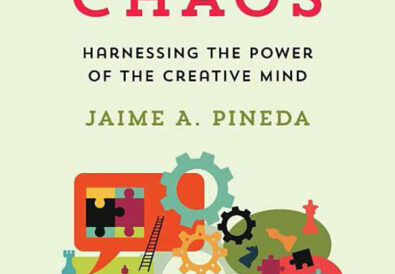When my dad died suddenly in 2008, I became depressed. Three months later I had a dream of him (which I now call a grief dream). The dream changed my grief in ways I still don’t fully understand.
In my dream, my father was on the other side of my bedroom and he looked healthy. He actually looked far healthier than he ever had before, and he had a peace about him that I never witnessed in waking life. I walked up to him and said that I loved him and that I would miss him (acknowledging his death). We hugged, and then I woke up. When I woke up, I just sat on the edge of my bed in wonder as to what just happened. What was that? I could feel that I had changed inside, as I felt the colour come back to my life. The change happened inside me, it wasn’t based on me interpreting the dream. Whatever happened that morning, my love of grief dreams was born.
After I finished my undergraduate degree, I started to provide volunteer bereavement support at a local hospice. The bereaved kept asking questions about dreams of the deceased that I didn’t have any answers for. When I investigated the scientific literature on the topic, I was shocked to find that research on it was pretty much non-existent. That is when I decided to go back to school and research this topic in both my M.A. and Ph.D. (in psychology) to help those who had questions. Below are answers to common questions on grief dreams:
- What kinds of dreams might I have after my loved one has died?
There are three forms of grief dreams (dreams after loss):
1. Dreams that don’t have the deceased present or mention them. The dream may be addressing feelings of the loss (e.g., running by a mountain and it collapses on you, searching for something and not finding it).
2. Dreams that don’t have the deceased present, but they are mentioned or symbolized (e.g., a character in the dream talks about the deceased, visiting the hospital where the deceased died).
3. Dreams that have the deceased present in the dream (e.g., in human form or in another form). In terms of this third form, the deceased is usually physically present in the dream, but they may sometimes use a device to speak to the dreamer (e.g., a telephone).
- Is it common to dream of your loved one after loss?
There is limited research on the topic, but my research suggests it is very common for people to have at least one dream. For example, I have found that 86% of partners (after partner loss) had at least one dream of the deceased within the first year to two years after loss. Dreaming of the deceased seems to be a common experience for those with losses categorized as disenfranchised too (e.g., pregnancy loss and pet loss). Research I have done after pregnancy loss found 57% of birth mothers/partners had at least one dream of the deceased, and after pet loss 78% of dog/cat owners had at least one dream of the deceased.
I have heard from people that it sometimes only took a month before they remembered a dream of their loved one, while others report it took years. The frequency of these dreams of the deceased varies widely from person to person. Some people only have one their entire life, while others can have them monthly—and some have none.
- Are there common themes of dreams of the deceased? In my research, I have found that there are many different themes that can occur with dreams of the deceased. Two common positive themes are: 1) seeing the deceased healthy and/or happy, and 2) the deceased acting or speaking in a way that was comforting. Two common negative themes are: 1) seeing the deceased dead, dying, or suffering from illness, and 2) the deceased acting or speaking in a way that was upsetting. Positive themed dreams of the deceased appear to be more common after a loss than negative ones.
- Do children have dreams of the deceased? Yes, it is common for children to have at least one dream of the deceased. They can have similar grief dreams as adults, but the major difference is how they interpret these experiences. This is why it is important to ask them about what dreams they may be having and how they feel about those experiences.
- Why am I having negative dreams of my loved one? Negative dreams of your loved one are common after loss. Dream research has shown that dreams represent our waking life. If you’re happy during the day, you are more likely to have positive dreams. If you’re sad during the day, you are more likely to have negative dreams. After loss, you are experiencing many negative emotions and can expect many of your dreams to reflect that. In my experience, many people who have negative dreams of the deceased are having issues with their unresolved anger or guilt. Additionally, the death may have been traumatic and they may be reliving that traumatic event (e.g., seeing their loved one dying again). My research supports these links (unresolved anger/blame and trauma symptoms) to distressing dream content. If you work through your trauma or grief issues (I recommend seeing a professional), your dreams of the deceased should change to something more positive. Additionally, there are other ways to reduce negative dream, such as dream re-scripting. The bereaved that are spiritually inclined may take these negative dreams as a haunting by the deceased. Be cautious about making that interpretation; instead consider carefully whether the dream imagery connects to your issues with the individual and/or your grief.
- What if I want to have more dreams of my loved one?
There are many reasons why you may want a dream of your loved one; to see them one more time, hear their voice, relive a memory, etc. If you are spiritual, you may want a dream to confirm they crossed over and/or still love you. I caution against thinking that not having a dream is a sign of something wrong with the deceased (e.g., haven’t crossed over) or something wrong between the two of you (e.g., doesn’t love you anymore or is mad at you).
In my own research, I found that the most important factor that related to recalling dreams of the deceased is how many dreams someone usually recalls in general. Some people remember dreams every night and some people never remember their dreams. Research has found that most people remember one or two dreams a week. If you do not remember your dreams often, then it may be more difficult for you to remember a dream of the deceased (even though you really want to remember it).
Almost no one remembers every dream they produce while sleeping. So given this, it is highly likely that we are dreaming of the deceased more than we realize. A good way to increase your ability to remember dreams is to increase your value in them. One way to do this is to keep a dream journal for all of your dreams (not just the ones with the deceased). It is still a mystery why the mind only remembers certain dreams of the deceased and not others.
- Do you believe my dream is a visitation? No one can ever tell you if a dream is a visitation or not (even though many people try). I only intervene if someone is calling their negative dream a visitation, as the research says it’s more likely a product of your unresolved emotions. By believing this dream is factual you may not only unnecessarily make yourself even more unhappy, but you may miss an opportunity to learn from your dream. If your dream is positive, then believe whatever your heart wants to. Only you know how that particular dream feels to you.
- Do dreams of the deceased change over time? Yes, dreams seem to change over time. In one study I explored a dream journal following father loss and found that the dream content and themes changed as time went on (as the dreamer started to heal). Since dreams reflect our waking life, these dreams seem to change to reflect what we are currently going through. When you are grieving the death, these dreams can focus on your grief. As you start to heal, these dreams of the deceased can focus on other issues you are going through in waking life (e.g., the deceased provides you comfort during a pandemic, the deceased parent gives advice on your relationship issues). At the end-of-life, dreams of the deceased can focus on helping you with the transition from life to death.
- What can we learn from our dreams? As I have already discussed, we can learn from negative dreams about issues and concerns that perhaps we have not yet given enough attention to in our waking life. We can also learn from our positive dreams with the deceased. Many positive dreams can help resolve grief issues in waking life (e.g., a need for forgiveness, or to feel loved, to be reassured that the loved one is safe, a chance to see them healthy). These positive dreams can reflect your waking life concerns and what you’re longing for. Whether or not you believe a positive dream is a visitation, it doesn’t change that a positive dream can reflect your waking life.
- Where can I learn more about grief dreams? You can learn a lot about grief dreams by just asking people. Don’t be afraid to ask. I have come to learn that a gift seldom given is a safe space to share one’s grief dreams. Just by asking someone about their dreams, you may be giving them a gift long unopened. I have had people tell me grief dreams that they haven’t shared for over 40 years because of their fear of judgment. So when you ask the question, remember not to judge or even interpret the dream…just be with them and ask them how it felt.
 Joshua Black, PhD, is a grief researcher, speaker, consultant, and host of the Grief Dreams Podcast. His work focuses on dreams and continuing bonds after loss, including prenatal and pet loss. As one of the world’s leading academic experts in grief dreams, which can be dreams of the deceased, Dr. Black has directed his efforts on raising awareness about this fascinating phenomenon through media interviews, including PBS Next Avenue and CBC News, in addition to speaking engagements and workshops. In addition to GriefDreams.ca, you can find him on Facebook, Twitter, Instagram, and Clubhouse.
Joshua Black, PhD, is a grief researcher, speaker, consultant, and host of the Grief Dreams Podcast. His work focuses on dreams and continuing bonds after loss, including prenatal and pet loss. As one of the world’s leading academic experts in grief dreams, which can be dreams of the deceased, Dr. Black has directed his efforts on raising awareness about this fascinating phenomenon through media interviews, including PBS Next Avenue and CBC News, in addition to speaking engagements and workshops. In addition to GriefDreams.ca, you can find him on Facebook, Twitter, Instagram, and Clubhouse.




















